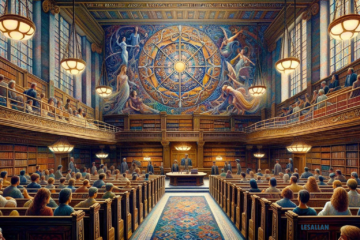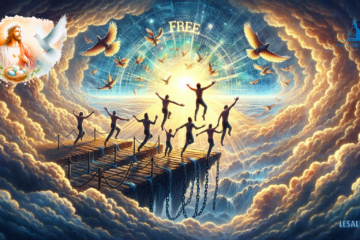Lesallan | May 9, 2025

Exploring the Duality of Body and Mind: A Christian Reflection
Dr. Trent Lambert’s question— “In Dualism, is there anything true of your body that is not true of your mind?”—resonates deeply for those of us who see our lives as a blend of the tangible and the transcendent. For many Christians, the conversation about dualism is not merely academic; it mirrors our lived experience as beings created in God’s image, inviting us to reflect on how our physical form and inner, spiritual life coalesce into one profound testimony of creation.
The Tangible Truths of the Body
Our bodies are marvels of divine workmanship, structured by natural laws that science can measure and explain. Daily, we witness the undeniable reality of biological processes—metabolism, aging, and the sensation of pain—all expressible through numbers, temperatures, and chemical reactions. Philosophers such as Descartes argued that these empirical dimensions of our existence exist independently from our inner lives. Modern thinkers like Damasio have further illustrated how the body’s intricacies contribute to our overall being, highlighting a realm of truth that is visible, measurable, and deeply grounded in the natural order. Recognizing these facts reminds us that our physicality, though finite and subject to decay, is vital to God’s intentional design.
The Ineffable Nature of the Mind
In marked contrast, our minds invite us into a world where subjective experience reigns. Thoughts, memories, emotions, and the spark of introspection form an inner life that resists easy quantification. Even as neuroscientific research seeks to pin down the neural correlates of consciousness, the elusive quality of “qualia”—the essence of what it feels like to experience life—remains beyond the full grasp of the physical sciences. Influential figures like David Chalmers remind us that this inner realm, while perhaps informed by the physical brain, unfolds in a deeply personal and transcendent mode. This mystery echoes the sacred for the Christian, pointing to a realm of truth where spiritual insight and divine communion reside.
A Harmonious Perspective on Dualism
Embracing dualism, from both scientific and philosophical angles, enriches our understanding of what it means to be human. On one hand, our bodies remind us of our mortal, fragile nature—a necessary reality that calls us to care for this “temple” entrusted to us by God. On the other hand, our minds reveal an inner dimension that can soar beyond the physical, touching on creativity, moral insight, and spiritual yearning. This duality encourages us to see ourselves as whole beings who are more than just flesh and blood. It reinforces a timeless truth espoused throughout Scripture: while our mortal bodies are temporary, our inner selves—our souls—are designed for eternal fellowship with our Creator.
This dialogue between the measurable and the ineffable nurtures deeper reflection. By appreciating the distinct truths of our body and mind, we recognize a balance that underpins classical dualistic thought (as discussed by Descartes, Damasio, and Chalmers) and enriches our spiritual walk. It challenges us to cultivate physical stewardship and spiritual depth, knowing that each complements the other in our journey toward a fuller expression of God’s purpose.
A Call to Deeper Reflection
In our ever-evolving world, where disciplines like cognitive neuroscience and phenomenology continually propose bridges between empirical evidence and subjective experience, we are invited to engage in these discussions thoughtfully and prayerfully. How do the evident truths of your physical being inspire you to nurture your inner life? How does the mystery of human consciousness kindle your spirituality and understanding of God’s nature?
I encourage you to pause and reflect on this interplay between the visible and the hidden, the measurable and the ineffable. Let us consider our lives as a dynamic tapestry in which each thread represents our earthly and eternal nature—a tapestry woven by a Creator who delights in our complexity.
Blessings,
Lesallan
References:
Descartes, R. (1984). Meditations on First Philosophy (E. S. Haldane & G. R. T. Ross, Trans.). Dover Publications.
Damasio, A. (1999). The Feeling of What Happens: Body and Emotion in the Making of Consciousness. Harcourt Brace.
Chalmers, D. J. (1996). The Conscious Mind: In Search of a Fundamental Theory. Oxford University Press.




0 Comments